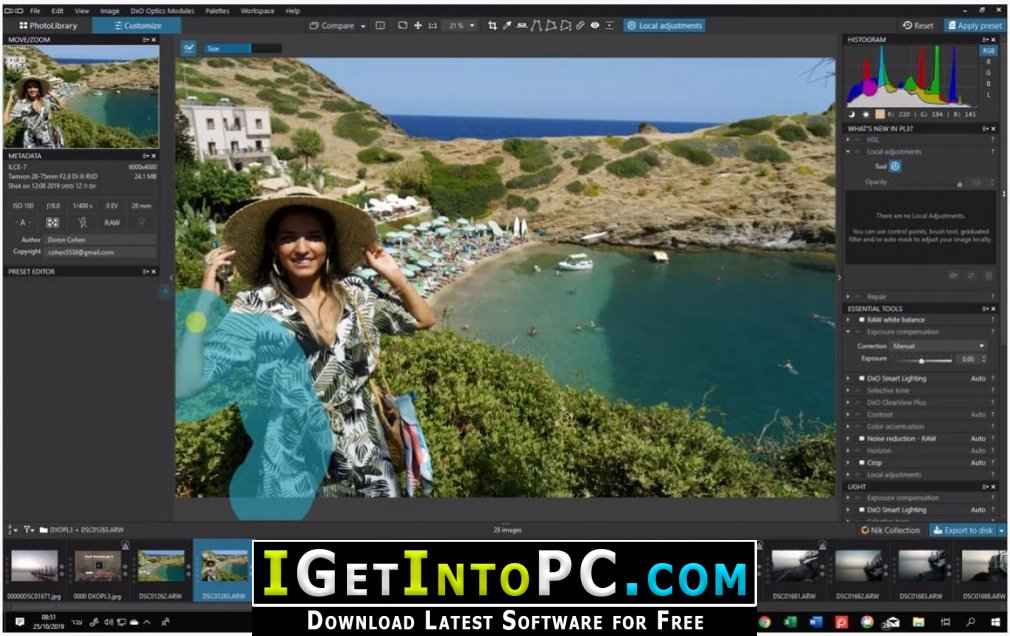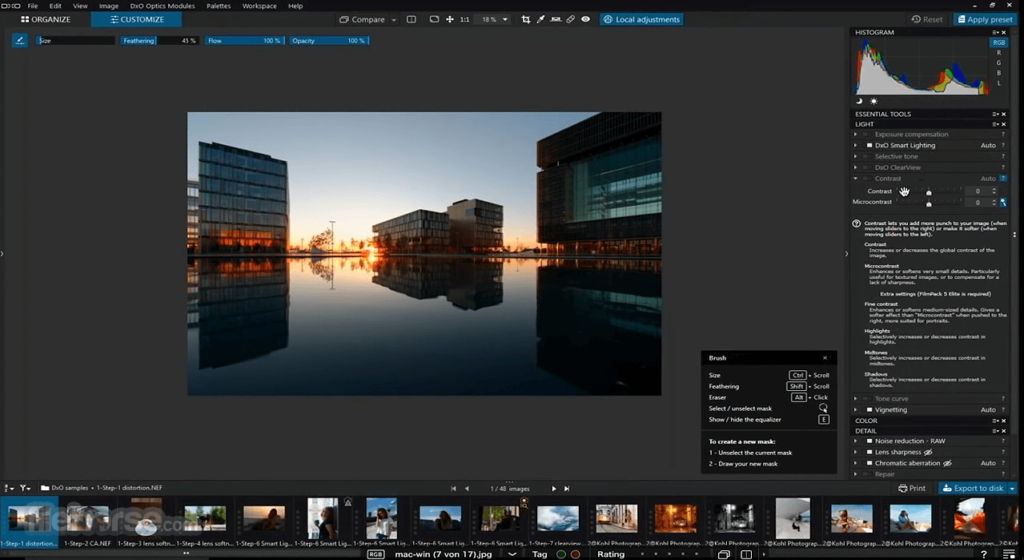

Photographers who already own a version of DxO OpticsPro can acquire an upgrade to DxO PhotoLab by logging into their customer account and a fully-functional trial version of DxO PhotoLab, valid for one month, is available on the DxO website for those who wish to 'try before they buy'.Īs well as a new version of PhotoLab, DxO has also introduced an update to the popular Nik Collection which they acquired last year. The Elite version unlocks features such as the ability to use the software as a plugin in Lightroom and a few extra tools. The Essential and Elite editions of DxO PhotoLab (PC and Mac) are available now, without a subscription, for £99 and £159, respectively.

The update means that images captured with these cameras and smartphones will automatically be corrected for optical defects. It's technology taken from Nik Software which was acquired by DxO from Google in late 2017, so it may ring-a-bell if you're a Nik software fan.įinally, DxO PhotoLab 1.2 adds support for images from the Sony A7 III, Panasonic Lumix DMC-G9, TZ90, and GX800, the Canon EOS 2000D and the Apple iPhone 8 Plus and iPhone X. DxO PhotoLab 5 is a raw processing and image-editing program that specialises in high-quality lens corrections and advanced RAW processing technologies, which take another step forward in version 5 to include more advanced local. Image organising/browsing tools better but still basic. For those who haven't used DxO's software before, you might not know what a U Point is but it's a feature that allows photographers to apply local settings in a non-destructive RAW stream to specific areas in an image. Elite version and add-ons push up the price.
#Dxo photolab 1 elite full version
In response to user requests, DxO has added a new keyboard shortcut that displays the U Point mask in grayscale and shows the area that will be affected by the correction. Free download DxO PhotoLab 5.3.1 Build 4762 Elite full version standalone offline installer for Windows PC, offers the most flexible and powerful processing. As a result of the tool editions, the equaliser system has had a redesign and local settings, which are worth noting are non-destructive, are grouped by categories: Light, Colour, and Detail. With version 1.2 of DxO PhotoLab, a new Hue (HSL) tool and Selective Tone settings have been added so it's easier to recover over/underexposed areas of an image. DxO PhotoLab, formerly known as DxO OpticsPro has had a little upgrade to bring tool improvements, a change users have requested and the support for several new cameras.


 0 kommentar(er)
0 kommentar(er)
